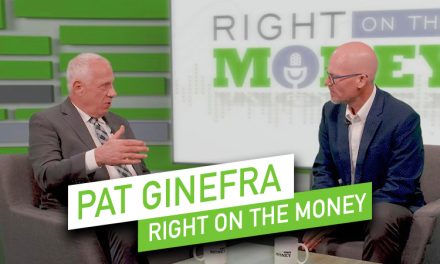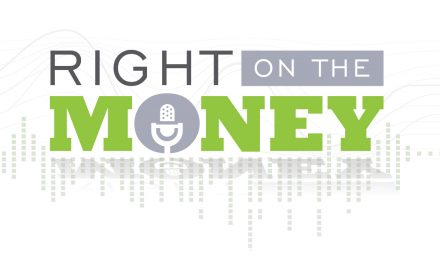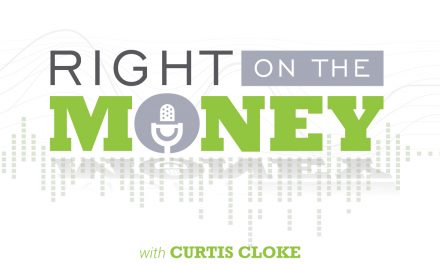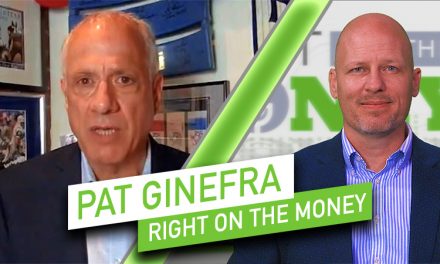Here are some highlighted excerpts from the interview with chartered financial consultant, investment advisor representative and author Mark Roberts:
Steve: Okay, now one of those issues you manage is RMDs, Requirement and Distributions. You say that the IRS has a kind of a little secret here, but it’s a big one. Talk about that.
Mark: RMD stands for Required Minimal Distributions. It is required we take a minimum withdrawal every year from our retirement plans, our IRAs and 401(k)s, every year starting at 70½ for the rest of our life. There is a formula. It is based on two things, age and size. That’s all the IRS cares about is, how old are you and how much do you have in IRAs and 401(k) plans. Based on that, the formula will tell us how much we have to withdraw every year. If we don’t withdraw the required amount and pay the income taxes, we will have a 50-percent penalty every year on the amount we were supposed to withdraw and don’t. Most people continue to save money in 401(k)s and IRAs because they want tax deduction while they are younger. Let it grow, grow, grow, grow, grow, not pay tax, and then boom, they get hit with taxes later and they don’t realize it at a time in life when they have less and less tax deductions.
Steve: The last seminar I went to this is still a consumer surprise, that if you do not pull out the required minimum distributions you will have up to a 50-percent tax bill. This is still news to seniors.
Mark: I find that baffling. Everybody knows the 59½ rule because we’ve all been under 59½ and if we take a withdrawal we pay tax and a 10-percent penalty. They don’t really pay attention to the 70½ and most people know there’s something at 70½, but “No, well I’m not 70½ yet, so I’m not going to worry about it.” I try to walk clients through the thought process of, let’s just say, playing a card game. If you and I were playing a card game I’ve never played this card game before in my life, you’re going to teach me how to play. Who’s likely to win, you or me? You would say, you, but after we play this card game 20, 30 times and we’ve played it two or three hours worth, now who’s likely to win? Maybe you, maybe me. I still see you have the advantage because although we both know the rules, you’ve been playing them longer. Because you’ve been playing it longer, you’ve figured out strategies. Strategy to stay with inside the rules to beat me without cheating.
Steve: I do want to avoid the 50-percent penalty. It’s punitive. Is there anything I can do before 70 ½ to mitigate this issue?
Mark: Oh, gosh yes, and we teach that to people all the time. Financial advisors don’t talk about this and then people like us, we butt heads with CPAs because the average CPA wants to teach us to save the most amount of tax this year. I’m trying to help people understand the laws so they can save the most amount of tax over the next 10, 20 years of their life. When you’re under 70, I don’t care if you’re in your 40s, 50s, 60s, working or retired. You want to talk to your financial professional about a process of moving money out of the tax-deferred IRAs and 401(k) plans. Start paying a little tax today and then reinvest it over like into Roth IRAs, something that can compound grow tax-free. A Roth IRA is just simply a tax code. It’s not an investment. You can invest a Roth IRA the same way you can invest in a traditional IRA. The idea is, spread out your taxes.
Right now think of it is, think of it as a farmer. If I’m a farmer and I have a choice to pay my taxes this year, do I want to pay tax at the beginning of the year on my seed, or pay tax at the end of the year on my harvest, what’s the lesser tax to pay? I’d rather pay tax at the beginning of the year on my seed. That’s not what people are doing. They’re putting money away in IRAs and 401(k)s, building up this big old harvest, where they’re going to have a big old required minimum distribution every year for the rest of their life, whether they want it, need it or not. They’re going to have to pay a lot of income taxes at a time in life later down the road when they have less tax deductions.
Watch the interview with chartered financial consultant, investment advisor representative and author Mark Roberts.
Syndicated financial columnist Steve Savant interviews author, popular platform speaker and investment adviser representative Mark Roberts. Right on the Money Show is an hour long financial talk distributed to 280 media outlets, social media networks and financial industry portals.





